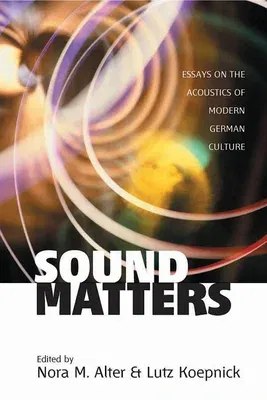Sound Matters: Essays on the Acoustics of German Culture (Revised)Paperback - Revised, 1 December 2005

Qty
1
Turbo
Ships in 2 - 3 days
In Stock
Free Delivery
Cash on Delivery
15 Days
Free Returns
Secure Checkout

Print Length
266 pages
Language
English
Publisher
Berghahn Books
Date Published
1 Dec 2005
ISBN-10
157181437X
ISBN-13
9781571814371
Description
Product Details
Book Edition:
Revised
Book Format:
Paperback
Country of Origin:
US
Date Published:
1 December 2005
Dimensions:
22.86 x
15.24 x
1.42 cm
ISBN-10:
157181437X
ISBN-13:
9781571814371
Language:
English
Location:
New York, NY
Pages:
266
Publisher:
Weight:
358.34 gm